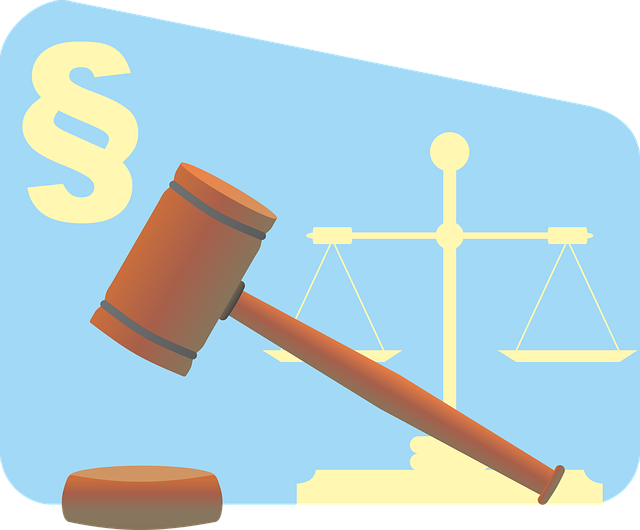RF Regulatory Agency investigations are vital for ensuring safe RF technology usage, but can be complex and costly, especially with potential libel claims. The process involves multiple stages and requires meticulous record-keeping, expert testimony, and strategic legal planning. Defending against allegations is resource-intensive due to the intricate regulations and high-stakes consequences, including significant financial burdens. Effective risk mitigation strategies, such as robust internal policies, training, and compliance with industry-specific regulations, can shield clients from the cost to defend against libel claims and foster positive relationships with regulatory bodies.
“In the dynamic realm of radio frequency (RF) technology, regulatory investigations by agencies like the FCC can significantly impact businesses. ‘Understanding RF Regulatory Agency Investigations’ offers a comprehensive guide, demystifying the process for industry players. With a focus on legal strategies, this article explores the intricate balance between innovation and regulation, particularly in defending against libel claims. We delve into cost analysis, highlighting the financial implications of navigating these inquiries. Additionally, discover effective risk mitigation strategies to optimize defense costs, ensuring businesses stay compliant and protected.”
- Understanding RF Regulatory Agency Investigations: A Comprehensive Overview
- The Legal Landscape: Navigating Libel Claims in the RF Space
- Cost Analysis: Defending Against Libel in Regulatory Inquiries
- Strategies for Mitigating Risks and Reducing Defense Costs
Understanding RF Regulatory Agency Investigations: A Comprehensive Overview

RF Regulatory Agency Investigations play a pivotal role in ensuring the safe and efficient use of radio frequency (RF) technologies. These agencies are responsible for navigating complex legal frameworks to protect public health, safety, and environmental well-being. When an investigation arises, understanding the process is paramount for any individuals or entities facing potential non-compliance charges.
The journey through these investigations involves all stages of the investigative and enforcement process, from initial notices and warnings to formal allegations and subsequent jury trials. A key aspect for those accused is mounting a winning challenging defense verdict. This requires meticulous record-keeping, expert testimony, and legal strategizing to counter the agency’s claims, especially considering the potential high costs to defend against libel claims that may arise during such proceedings.
The Legal Landscape: Navigating Libel Claims in the RF Space

In the realm of Radio Frequency (RF) regulatory investigations, navigating libel claims is a complex task that demands meticulous attention. The legal landscape in this space is intricate, particularly when addressing allegations made during RF agency inquiries. Defending against libel in the RF sector can be costly and time-consuming, as every detail must be scrutinized to ensure accuracy and mitigate potential damage to an entity’s reputation.
When a company or individual faces a libel claim, especially in the context of RF matters, they enter a legal labyrinth. This is where a robust general criminal defense strategy becomes paramount. Achieving extraordinary results in these cases often involves demonstrating truth as a defense, which can be challenging given the technical nature of RF investigations. Additionally, the involvement of philanthropic and political communities further complicates matters, necessitating a nuanced approach to manage potential conflicts and protect interests.
Cost Analysis: Defending Against Libel in Regulatory Inquiries

Navigating RF regulatory inquiries can be a complex and costly endeavor for companies, especially when facing libel claims. The defense against such allegations is a strategic process that demands significant resources, particularly in high-stakes cases. The complexity arises from the intricate nature of regulations and the potential far-reaching consequences for businesses. When corporate and individual clients are involved, the financial burden can be substantial, reflecting the gravity of these matters.
In preparing for jury trials, legal teams must thoroughly analyze every aspect of the case. This involves extensive research, gathering evidence, and crafting persuasive arguments to counter libel claims. The cost to defend against these accusations includes attorney fees, expert witness expenses, and potential settlement negotiations, all of which can add up quickly. Effective legal representation requires a deep understanding of both regulatory frameworks and defamation laws, ensuring that every defense strategy is both robust and economical in the face of such challenging inquiries.
Strategies for Mitigating Risks and Reducing Defense Costs

In the face of RF Regulatory Agency investigations, strategic risk mitigation is key to protecting both corporate and individual clients from substantial legal costs, including the cost to defend against a libel claim. Achieving extraordinary results often begins with proactive compliance measures tailored to industry-specific regulations. By implementing robust internal policies and training programs, organizations can ensure their operations align with legal standards, thereby reducing the likelihood of costly investigations and subsequent litigation.
A meticulous approach to risk management involves identifying potential vulnerabilities early on. This includes regular audits, staying abreast of regulatory changes, and fostering a culture of ethical conduct. Such proactive measures not only safeguard against legal repercussions but also demonstrate a commitment to maintaining integrity, which can be invaluable in avoiding indictment and fostering positive relationships with regulatory bodies.
RF Regulatory Agency investigations can be complex and costly, particularly when libel claims are involved. As discussed in this article, understanding the legal landscape and implementing effective risk mitigation strategies are crucial to navigating these inquiries successfully. By analyzing potential liabilities and adopting proactive measures, organizations can significantly reduce their cost to defend against libel claims. Ultimately, recognizing the importance of comprehensive preparation and efficient resource allocation is key to ensuring a favorable outcome in RF regulatory matters.






